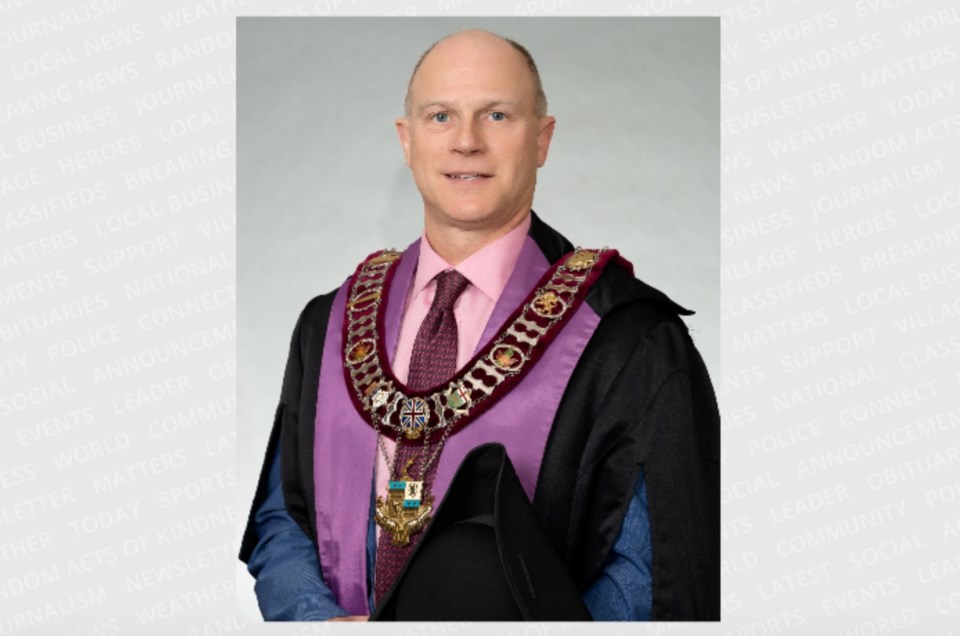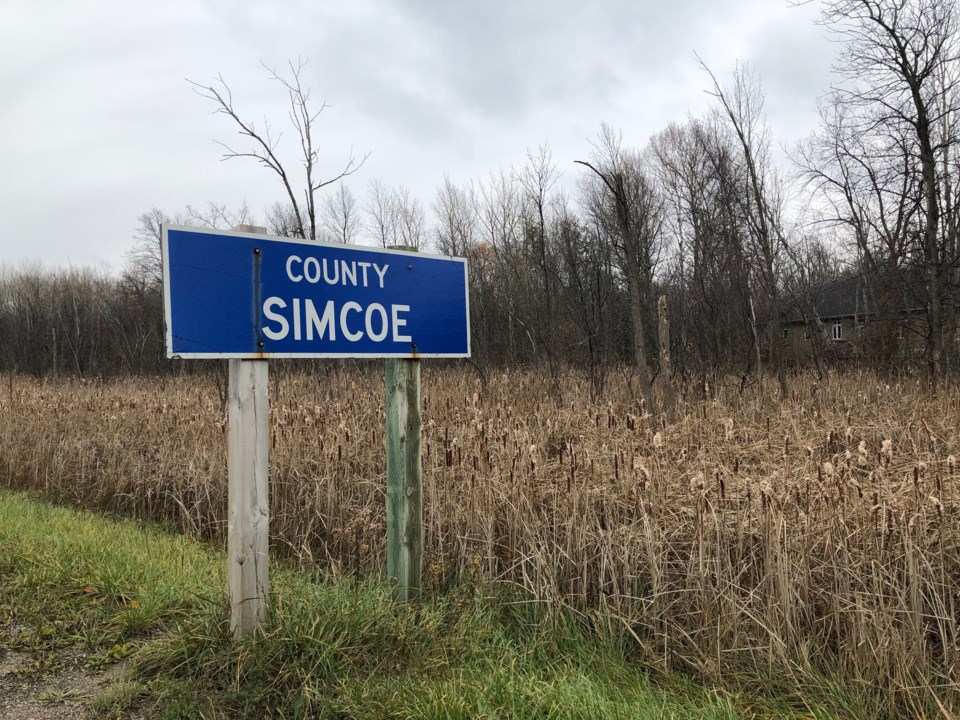Warden Basil Clarke says Simcoe County is still open to the option of meeting with potential provincial facilitators to help the local upper-tier government better serve its residents.
Recently appointed Housing and Municipal Affairs Minister Paul Calandra said Monday that he will “review” a past decision to potentially reform municipal governance and get more homes built. The next steps will be outlined later this month, he added.
At its meeting this morning (Sept. 12), county council directed Clarke to reach out to the new minister and remind him of the county's desire to sit down with facilitator, should Calandra opt move forward with that plan.
Clarke told BarrieToday the county is “fine” should Calandra decide to postpone plans to meet with various regional governments, but noted county council would still welcome the opportunity to sit down and attempt to find ways the upper-tier municipal government can work more efficiently.
“We have all of our ducks in a row. We are really willing to work with the province on whatever we can do to get more homes faster," he said. "If that’s with the facilitator they can find, great. We are looking forward to sitting down.

"If they decide to go without a facilitator, that’s fine. We will sit down and negotiate between staff and myself. We are all on the same side here. We are positive, no matter which way the province decides to go on it. We want to work with them,” said Clarke, who also serves as mayor of Ramara Township.
In May, the Tories introduced legislation to break up Peel Region by 2025 and announced they would appoint “regional facilitators” to explore whether Simcoe County, as well as Durham, Halton, Niagara, Waterloo, and York regions, should follow suit.
At the time, now-former housing minister Steve Clark said the government was taking “decisive action” to help build more homes.
Monday’s move won’t affect Peel’s dissolution. The region’s five facilitators — tasked with making recommendations on thorny issues such as taxes and policing — were announced in July.
The former minister told the Association of Municipalities of Ontario (AMO) conference he’d make the appointments by Sept. 11. The delay had caused some frustration among local politicians.
In the interim, some municipalities took measures into their own hands.
Councillors from West Lincoln, Lincoln, and Grimsby — all in the Niagara Region — held a rare joint meeting to discuss regional governance in August.
Clark resigned from cabinet last week over his involvement in the Greenbelt land-swap scandal. His former chief of staff, Ryan Amato, also stepped down.
Calandra took over as housing minister and has had to get up to speed on one of the government’s most critical files. The former long-term care minister, who still serves double duty as government house leader, has a busy few months ahead of him.
After being shuffled into his new job, he announced the government will do a full-scale review of the Greenbelt boundaries. He also outlined several steps the government will take to prepare for the next major housing bill set to come in 2024.
Simcoe County's warden, meanwhile, said he believes the province will still proceed in some manner with finding ways to restructure the various upper-tier governments
“We are more than willing to sit down and find ways to be more efficient," Clarke said. "At the end of the day, we need housing and we are on board with that. They are moving forward and we want to move forward with them."
As an "upper-tier" municipality, the County of Simcoe — which consists of 16 member municipalities, and not including the separated cities of Barrie and Orillia — is responsible for a range of municipal services include social housing, ambulance and emergency planning, environmental services, a county road system, Ontario Works, children's services, long-term care, museum, archives, forests, tourism, and land-use policy planning.
Currently, the "lower-tier" municipalities are responsible for water and sewer services, local roads, public libraries, recreation services, fire and police services, land-use development control, licensing, and permitting services. Barrie and Orillia pay into the county coffers for several services, including social services and paramedic services.
“Our small municipalities can’t survive without the county. That is still the feeling of this house. We are not Peel Region and we know there’s a place for Simcoe County," Clarke said. "What we want to do is find ways to be more efficient and that’s why we are looking forward to sitting down with the province and asking where they think we can find more efficiencies."
He pointed to infrastructure as an example of a big issue that requires a county-wide approach.
“If you look at all the proposed development we have, what is holding it back is lack of services," Clarke added. "We know it is a big one we are going to have to tackle moving forward and we are always open for suggestions ... and for any money (the province) wants to throw our way.”
The talk of regional facilitators first entered the fray last fall, when the government said they’d advise on "the best mix of roles and responsibilities between upper- and lower-tier municipalities" to solve Ontario’s housing woes and whether regional mayors should get strong mayor powers.
Work on shoring up the regional facilitators' roles, responsibilities, and paycheques was ongoing as of last month.
Each region is supposed to get five facilitators, according to the original announcement.
— With files from The Trillium


